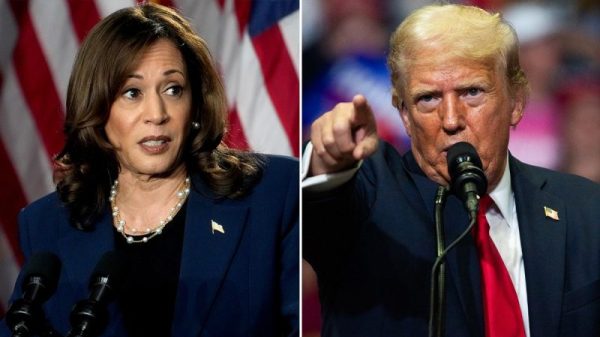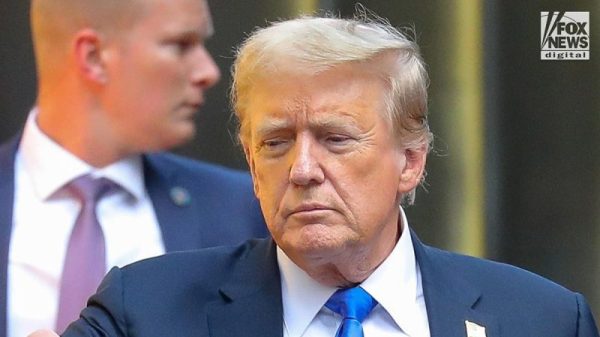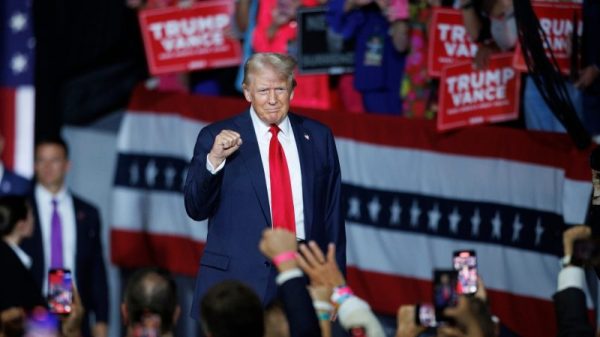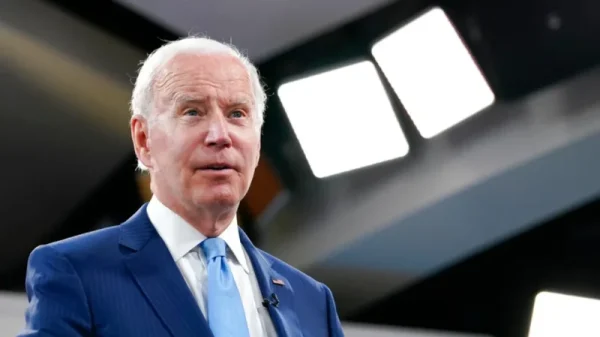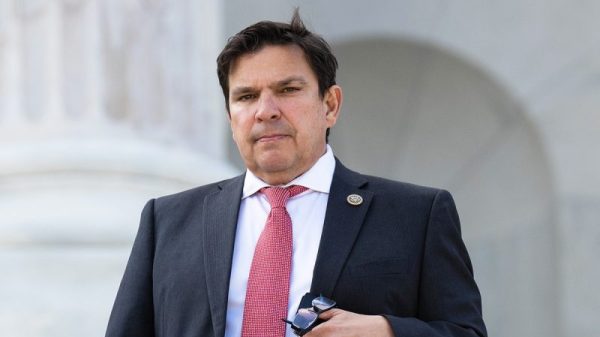After Senate Minority Leader Mitch McConnell (R-Ky.) experienced his second freezing episode in five weeks, Kentucky Gov. Andy Beshear (D) is declining to say whether he would follow a state law requiring him to appoint a Republican in the event of a Senate vacancy.
A reporter asked Beshear on Thursday whether, if McConnell were to step down, he would choose a replacement from one of three nominees selected by the state Republican Party, as the statute requires.
“There is no Senate vacancy,” Beshear responded at the news conference. “Senator McConnell has said he’s going to serve out his term, and I believe him, so I’m not going to speculate about something that hasn’t happened and isn’t going to happen.”
Asked whether voters deserve to know his stance on the issue, Beshear said he would not “sensationalize” McConnell’s health.
Beshear, who took office in 2019, is running for reelection this fall against Kentucky Attorney General Daniel Cameron (R), a protégé of McConnell who has also been touted as a possible Senate successor should McConnell retire.
McConnell, the longest-serving Senate GOP leader in history, has insisted he has no imminent plans to leave the Senate.
Republican senators and other allies rallied around him after he froze for more than 20 seconds while speaking to reporters Wednesday in an incident similar to one in July. McConnell’s office attributed the freezing to him feeling “momentarily lightheaded,” and the attending physician of Congress said the senator was cleared to continue working.
Beshear’s remarks raise questions about whether the governor might challenge the 2021 law and seek to appoint a Democratic senator. He vetoed the statute after the state’s Republican legislature passed it, calling the bill “unconstitutional.” The legislature overrode Beshear’s veto.
The law, backed by McConnell, requires a governor to select within 21 days one of three nominees chosen by the state-level party apparatus of the departing senator. A special election must then be held to select a more permanent replacement. The timing would depend on when the vacancy occurred.
In his veto message, Beshear said the law violates the 17th Amendment of the U.S. Constitution, which gives voters the right to directly cast ballots for senators, rather than state legislatures filling the seats. The amendment also says a state legislature can empower a governor to temporarily fill a vacancy until an election can be held.
“The bill therefore upends a century of precedent by delegating the power to select the representative of all Kentuckians to an unelected, unaccountable committee of an organization that represents only a fraction of Kentuckians,” Beshear wrote in the veto message.
The governor also argued that the law violates a provision of the Kentucky Constitution that says state-level vacancies “shall be filled by appointment of the Governor.”
“No conditions, qualifications, or limits are placed on that appointment power,” Beshear wrote.
In addition to his comments Thursday, Beshear declined to answer a question from Politico this month about whether he would commit to appointing a Republican replacement for McConnell.
“There’s not going to be a vacancy,” he told Politico. “That would be total speculation.”
Beshear would have two choices if he wanted to appoint a senator of his choosing, said Michael Abate, a Louisville-based attorney with expertise in constitutional law. The governor could file a lawsuit challenging the statute or immediately appoint someone not on the state Republican Party’s list of three names. Either scenario would probably prompt a court battle, Abate said.
“I do think there’s a real and substantial question here,” he said of the law’s constitutionality. “Historically, when the governor’s given power of appointment for something like this or the executive power’s given, it’s often pretty wide-ranging discretion.”
In 46 states, governors are empowered to appoint a temporary replacement if a Senate seat becomes vacant. Eleven of those states limit the governor’s choices in some way.
In addition to Kentucky, six states — Hawaii, Maryland, Montana, North Carolina, West Virginia and Wyoming — specifically require that the governor choose from a list of nominees compiled by the outgoing senator’s party.
In four states, special elections must occur to fill open Senate seats.
Wyoming is the most recent state in which a governor was legally required to appoint a senator from an opposing party to keep the same party balance in the Senate. Then-governor Dave Freudenthal, a Democrat, appointed Republican John Barrasso to the Senate after Republican Sen. Craig L. Thomas died in 2007.
Paul Kane contributed to this report.






